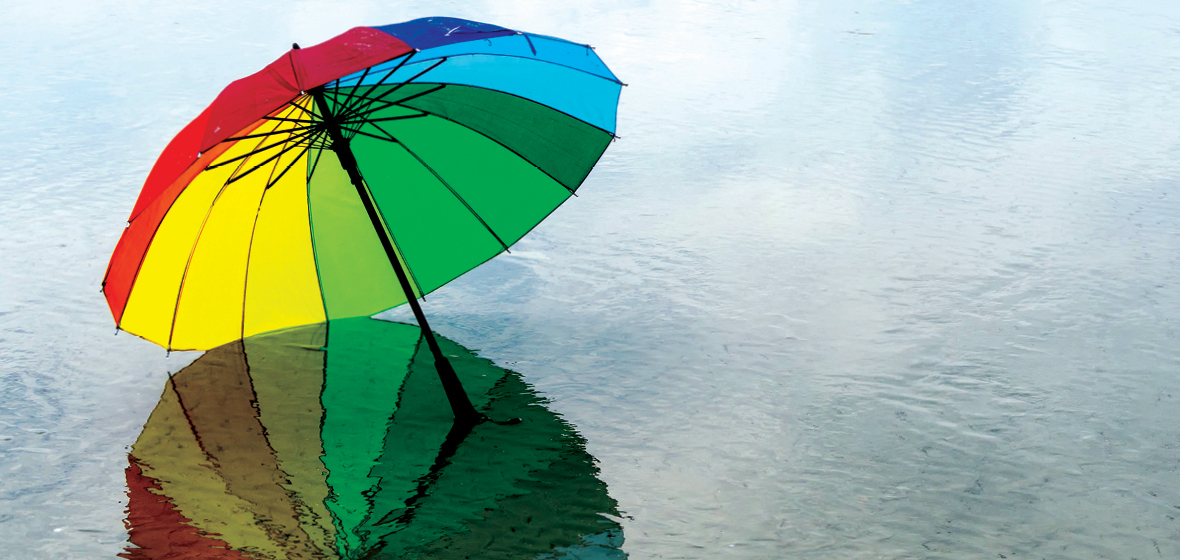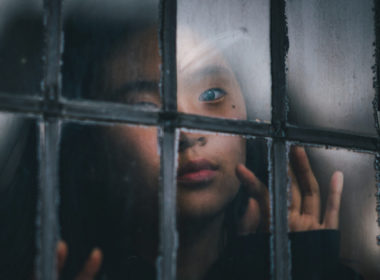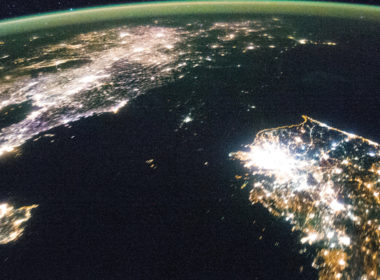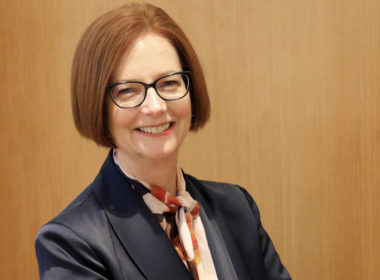When Australia said “yes” to marriage equality in November 2017, most Australians celebrated. But many within the LGBTQI community continued to experience distress as a result of a brutal and divisive national debate. As Sydney celebrates another Mardi Gras, we speak to four LGBTQI lawyers about their experiences within the legal profession.
Warning: This article contains content that may be distressing for some readers. If this article raises issues for you or someone you know, Lifeline for Lawyers offers 24-hour support on 1800 085 062, or QLife, a specialist LGBTQI support service, is available on 1800 184 527.
“I wouldn’t give that fag any matters. I don’t want him exposed to my clients.”
These words weren’t spoken directly to Joe Catanzariti’s face, but they were said. They came back to him via someone who was willing to let him know the awful things a colleague – someone he thought was a friend – was saying behind his back.
“It was very distressing,” says a pensive Catanzariti over coffee. “I still can’t understand how, having worked for my colleagues’ clients for the previous 10 years, my coming out changed all that and I was now perceived as less of a lawyer.”
Catanzariti, a former Law Society President, was 39 years old and married with three children when it dawned on him that something wasn’t quite right – that something was wrong. Growing up in a poor, conservative, immigrant family, he was incredibly naïve, he says, and disconnected from who he really was.
He embarked on a journey of self-discovery, which eventually led to the realisation he was gay. He left his marriage and changed the course of his life. It was wonderful and terrible all at once – and it changed the way he was treated at work.
“My choice was to go in with all guns blazing,” he says of his decision to come out to his colleagues at the law firm where he was a partner.
“I decided I wasn’t going to be subject to any blackmail or office corridor gossip. I made a very public outing at the firm. And then it began.”
“It”, explains Catanzariti, who is now Vice President of the Fair Work Commission and Co-Chair of the International Bar Association’s LGBTQI Committee, was a struggle he is still fighting today – one for genuine equality and a better understanding within law firms that someone’s sexuality should not negatively impact how they are viewed or treated.
“We have to talk about it. It is a real problem,” he says.
“I know there are partners who will say the things everyone wants to hear, but in the coffee shop they will comment on a person’s sexuality in an offensive manner. I have heard very senior people, not knowing my sexuality, making terrible comments. You would think we have gotten beyond this, but we haven’t.”
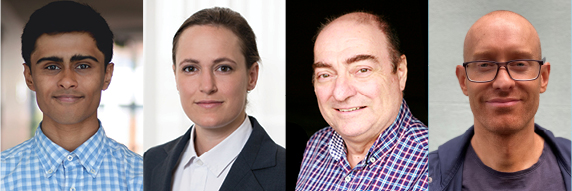
Life after marriage equality
Grace Wilkie holds back tears as she reflects on the 2017 marriage equality debate – and they’re not tears of joy.
The commercial litigator, who now works full time for the Australian Financial Complaints Authority, identifies as a lesbian. And while the fact that marriage equality is now law in Australia is hugely satisfying, the road to get there has taken its toll.
“Marriage equality happened, and it was a massive celebration and win, but immediately afterwards you had the fallout of people’s mental health. I know my partner experienced the very bad effects of what people were saying.
“Sorry,” she says, choking up, “I still find it upsetting.”
Wilkie says the impact of the Coalition Government’s postal vote has lingered, and that the debate allowed those opposed to marriage equality to rally into a more vocal, solidified movement.
“Now we’re getting things like the Religious Discrimination Bill almost as a recoil of that progress we made,” she says.
Wilkie’s experience is not an isolated one. Nicholas Stewart, a member of the Law Society’s Diversity and Inclusion Committee and a partner at Dowson Turco Lawyers – a firm specialising in LGBTQI issues – was also deeply affected by the drawn-out process.
“It caused a lot of distress for the gay and lesbian community. When your sexuality is made the subject of a political fight, it can be really hurtful,” he says.
“We can’t control our sexuality, and hearing particular conservatives say things which suggest we should retreat to our closets is painful.”
Catanzariti says those who are not part of the LGBTQI community often don’t understand that, while there has been progression, many still experience distress, discrimination, and other issues inside and outside the workplace.
“It is nonsense to say law firms now have diversity committees and everything’s hunky dory,” he says.
“I spent 30 years at the large end of town. Everyone rightly accepts there must be recognition and equality for women lawyers and steps taken to ensure it occurs, but when it comes to the under-the-radar diversity, the LGBTQI issue, that’s more problematic.”
While Wilkie says her experience of being a gay woman in the workplace has been “mostly positive”, she knows many for whom that has not been the case.
“I know there are some major struggles in some of the bigger law firms. It can sometimes be openly homophobic,” she says.
“I’ve heard of instances where firms have pushed back on some events that were LGBTQI-focused, saying they didn’t want to invite clients because they didn’t want to be viewed as a ‘gay’ law firm. It’s quite demoralising to know there are still pockets of these firms out there.”
Stewart, too, recounts negative experiences.
“Sometimes it’s been really awful. I’ve come across people in the courts who are homophobic,” he says.
“I’m not someone to dwell on things, but it does remind you sometimes of how you are different. I think a lot of us were naïve to think gay marriage would make it an even playing field.”
Understanding the issues at work
When it comes to LGBTQI inclusivity in the workplace, statistics show law firms lag behind their professional counterparts.
In 2019, only two law firms – Clayton Utz and MinterEllison – achieved gold-tier recognition in the Australian Workplace Equality Index (the self-described “definitive national benchmark on LGBTQ workplace inclusion”). On average, banking, consulting and government agencies ranked a lot higher than law firms.
Stewart says meaningful conversations are key when it comes to building understanding of the issues and challenges many LGBTQI people face daily.
“Any gay person will tell you that when it comes to public displays of affection, we often censor ourselves,” says Stewart.
“Even in my apartment block, if someone gets into the lift, my partner and I automatically pretend we’re friends, because you just don’t know how our affection will be received.
“We just want people to be understanding that there are some who don’t agree with us, and sometimes we are at risk of harassment or discrimination or violence.”
Wilkie agrees much of the discrimination and hostility could be eliminated if people simply had more open conversations. She’s had plenty of them, with mostly positive outcomes.
“I’ve experienced curiosity more than anything. People asking, ‘Hey, what’s it all about? When did you know you were gay? How long have you and your partner been together?’ I’ve been very lucky and had quite good experiences,” she says.
“It’s about trying not to take other people’s lack of knowledge personally. Sometimes the questions can be a bit insensitive, like ‘How does it work? How does the dynamic work? Don’t you want to have kids?’ Those are just conversations you have to have, because people want to know.”
It is also important, says Wilkie, for law firms to be proactive in facilitating educational opportunities.
“Hold events where people come from different elements of the community – trans, lesbian, gay, intersex – and educate,” she says.
“Once the fear of the unknown is taken out of it, people go about their business and realise nothing’s impacting them. More of that is probably required to really dig deep and uproot those last vestiges of oppression.”
A new generation
Rhian Mordaunt, a law student at the University of Sydney, was terrified at the prospect of entering law school as a gay man of colour. He didn’t think he would fit the mould of what lawyers look like and how they should behave.
“I remember being nervous going into law school, I guess because of what you see on movies and TV. It’s a lot of white, straight guys with briefcases and really intense suits and lower voices,” he says.
“So I practised how to speak business-like – I literally bought a TED talk book about how to speak professionally, because I assumed that’s what the legal profession would be like.”
Things didn’t turn out as expected, however.
“I got to law school expecting to have to change to fit a certain persona, but there was such a great bunch of other queer students on campus and everyone was so involved. I made a lot of great friends,” he says.
During Mordaunt’s second year of university, he began applying for internships. An active advocate in the LGBTQI space, he initially didn’t think twice about how this might come across during the interview process.
“I was talking to someone whom I had asked to look at my resume and they said, ‘Rhian, it’s great you’ve done all this amazing LGBT work, but what happens if the HR manager is homophobic?” he recalls.
“I went home and was like, ‘Oh my gosh, I didn’t even think about this. Should I stop doing so much LGBT community stuff? Because what happens if I do get a homophobic employer?’ Then my best friend said, ‘Would you really want to work for a homophobic employer?’ That completely changed my mind.
“For me, inclusivity matters. You really have to bring your whole self to work, and if you can’t bring your whole self to work, you’re not going to do your best.”
Mordaunt’s first legal job was at Dowson Turco lawyers, and he now works for Thomson Reuters where he’s an active member of the Pride at Work network.
“Major legal organisations are actually making an effort,” he says. “I don’t have to be this super-straight-acting, low-voice, movie archetype that I grew up watching.”
Mordaunt is the recipient of a Pinnacle Foundation scholarship, supported by KWM, for promising LGBTQI law students. He sees his role as empowering other young LGBTQI people to be proud of who they are, and educating others about the benefits of equality.
“Through the Pinnacle Foundation I’ve been able to go off and do talks at various organisations about the power of empowering LGBT young people and making sure they always feel supported,” he says.
“It’s really good to support these people so they can become role models themselves.”
Champions for change
According to Catanzariti, more role models is exactly what the legal LGBTQI community needs. Quite simply, there are not enough visible, out-and-proud lawyers, he says – something which has led him to become active on LGBTQI issues, joining a Sydney University queer mentoring program as a mentor and taking an active role in advocacy via the IBA.
Among other things, the IBA’s LGBTI Law Committee “promotes diversity and inclusiveness in the legal profession and society at large by presenting LGBTI ideals and calling attention to legal matters and developments through its sessions, publications, projects and collaborations with other committees in the IBA, as well as with external parties”.
It is part of Catanzariti’s quest to be a positive role model for younger lawyers who may struggle.
“The key in all of this is to have champions, whether within the law firms or more broadly. To have identifiable judges, partners and CEOs showing that they have made it,” he says.
“Aside from Michael Kirby, where are the future LGBTQI champions?”
While there has been significant change when it comes to genuine inclusivity and the end of discrimination against LGBTQI people, there is still much to be done.
“There are so many pressures on gay people. They often have family and personal pressures … It can lead to suicide. We have to get the work part right,” says Catanzariti.
Truly effecting change means calling out homophobia in the workplace when it arises – not just standing by and doing nothing.
“I think that not speaking out if [you] see harassment or any form of discrimination in the workplace is a problem,” says Mordaunt.
“It’s very much a thing that, ‘Well I’m not the one saying it’ … [so] they feel like they have no responsibility to call it out. Generally, if someone who’s senior says something that’s discriminatory, a person who is queer probably won’t want to go and challenge them out of fear they might lose their job, or not be respected, or be seen as a snowflake.”
Catanzariti sees the issues in law firms as ongoing, despite a definite shift towards social, legal and economic equality.
“As dynamics change in Australia, as there are more LGBTQI people in the profession, they need to have a safe house – not to be mollycoddled, but to be able to grow and feel totally comfortable with who they are,” he says.
“Law firms have to lead that.”

